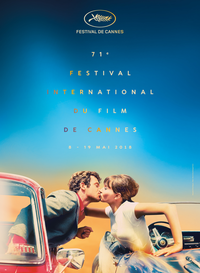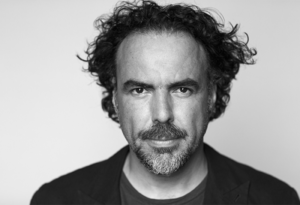 The line-up for this year’s festival suggested a renewal for the world’s most famous festival. With innovation and discoveries the promise at a decidedly not on-demand festival, Cannes seems to have decided to burnish its leadership credentials As ever, there were new films from world-renowned filmmakers (Terry Gilliam, Lars von Trier, Nuri Bilge Ceylan, Asghar Farhadi, Jean-Luc Godard and others), but the organisers have also clearly made an effort to include less familiar names among the 21 filmmakers vying to win the Palme d’Or, the festival’s top award. Still a necessary talking-point, though, is the lack of women (just three) among those 21 contenders. Over 70 years, the festival has expanded to fulfil many sets of expectations: red-carpet black-tie glamour from the biggest movie stars, breaking news and celebrity interviews for 4,000 global press, a vital film market for international buyers and sellers, and of course the films that will be assessed by the media and world’s most exacting critics. This year, the jury to award the festival’s big prize, the Palme d’Or, is headed by Cate Blanchett. Standing atop the steps of Cannes Film Festival, Cate Blanchett dedelivered a sunning speech on gender equality.
The line-up for this year’s festival suggested a renewal for the world’s most famous festival. With innovation and discoveries the promise at a decidedly not on-demand festival, Cannes seems to have decided to burnish its leadership credentials As ever, there were new films from world-renowned filmmakers (Terry Gilliam, Lars von Trier, Nuri Bilge Ceylan, Asghar Farhadi, Jean-Luc Godard and others), but the organisers have also clearly made an effort to include less familiar names among the 21 filmmakers vying to win the Palme d’Or, the festival’s top award. Still a necessary talking-point, though, is the lack of women (just three) among those 21 contenders. Over 70 years, the festival has expanded to fulfil many sets of expectations: red-carpet black-tie glamour from the biggest movie stars, breaking news and celebrity interviews for 4,000 global press, a vital film market for international buyers and sellers, and of course the films that will be assessed by the media and world’s most exacting critics. This year, the jury to award the festival’s big prize, the Palme d’Or, is headed by Cate Blanchett. Standing atop the steps of Cannes Film Festival, Cate Blanchett dedelivered a sunning speech on gender equality.



 Arguably the most prestigious film festival in the world, the annual Cannes Film Festival is a glittering celebration of cinema. The event will, as always, draw the biggest names in the film industry to Cannes for 11 days of movie screenings, red carpet action and exclusive parties. The Festival de Cannes has remained faithful to its founding purpose: to draw attention to and raise the profile of films. A panel of judges, last year headed up by Cate Blanchett, awards a number of prizes to the top films premiered at the event. This year, Mexican director Alejandro González will lead the jury at the Cannes Film Festival. Following in the footsteps of Cate Blanchett, the multi-award winning Mexican director, (who has received Oscars for Best Film, Best Director and Best Original Screenplay in 2015 for Birdman, as well as the Golden Globe for Best Motion Picture Drama and Best Director for The Revenant in 2016) is no stranger to the Croisette.
Arguably the most prestigious film festival in the world, the annual Cannes Film Festival is a glittering celebration of cinema. The event will, as always, draw the biggest names in the film industry to Cannes for 11 days of movie screenings, red carpet action and exclusive parties. The Festival de Cannes has remained faithful to its founding purpose: to draw attention to and raise the profile of films. A panel of judges, last year headed up by Cate Blanchett, awards a number of prizes to the top films premiered at the event. This year, Mexican director Alejandro González will lead the jury at the Cannes Film Festival. Following in the footsteps of Cate Blanchett, the multi-award winning Mexican director, (who has received Oscars for Best Film, Best Director and Best Original Screenplay in 2015 for Birdman, as well as the Golden Globe for Best Motion Picture Drama and Best Director for The Revenant in 2016) is no stranger to the Croisette.